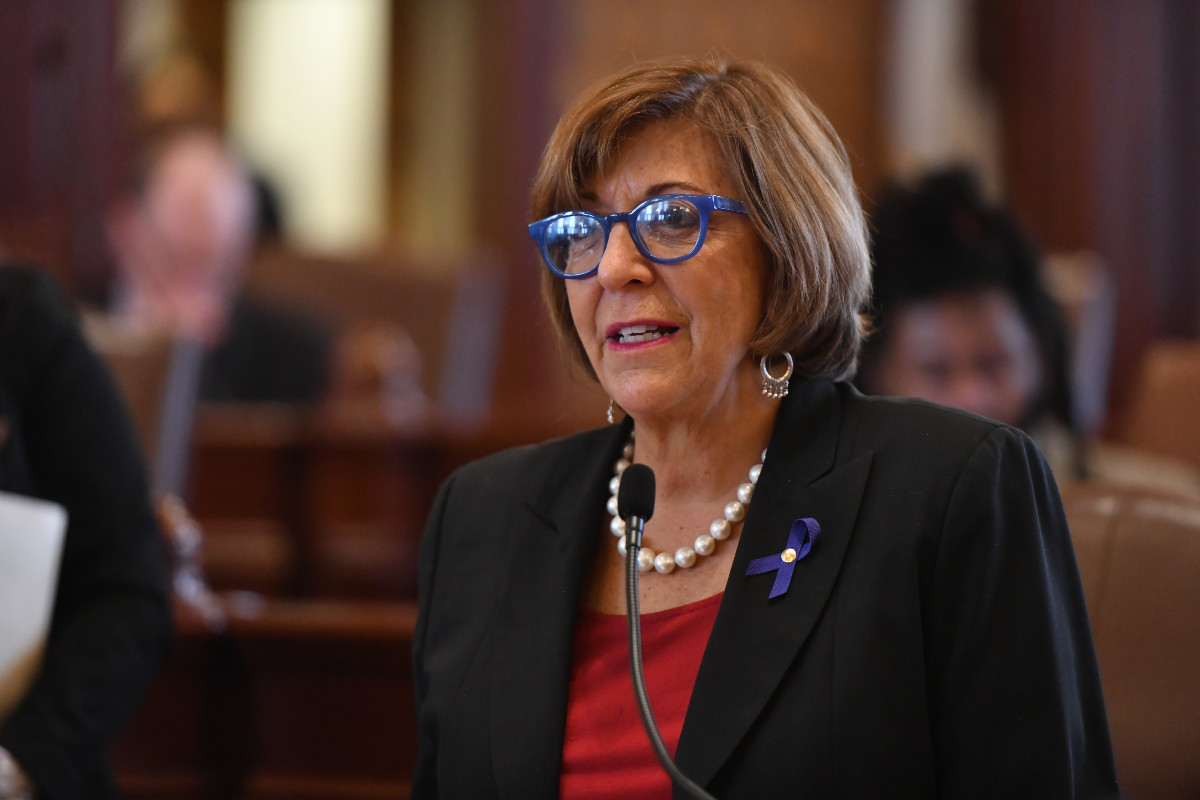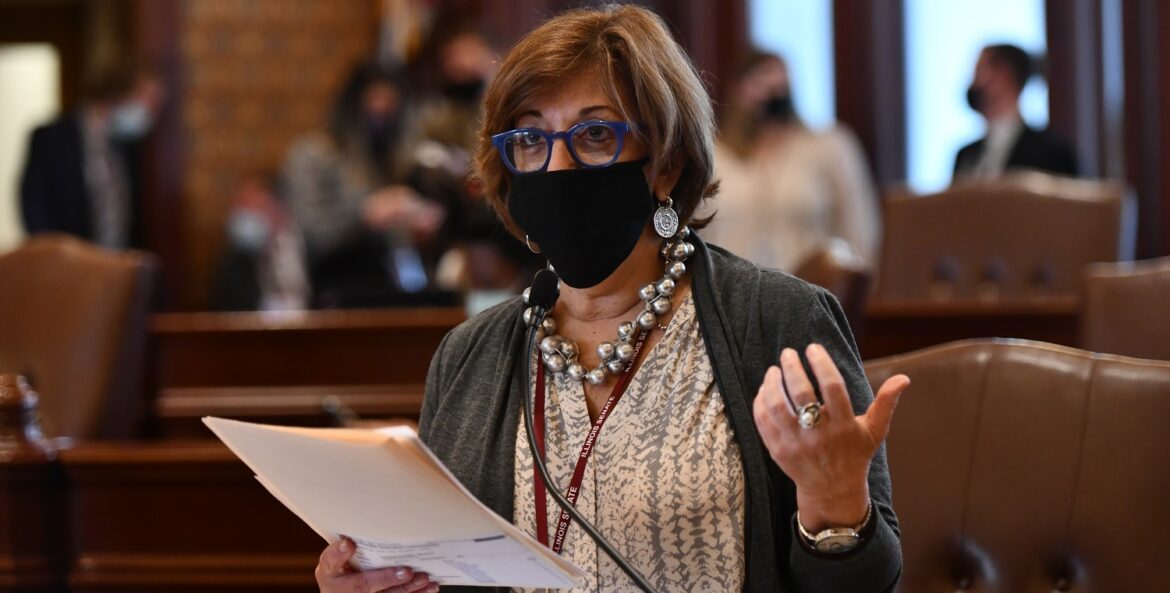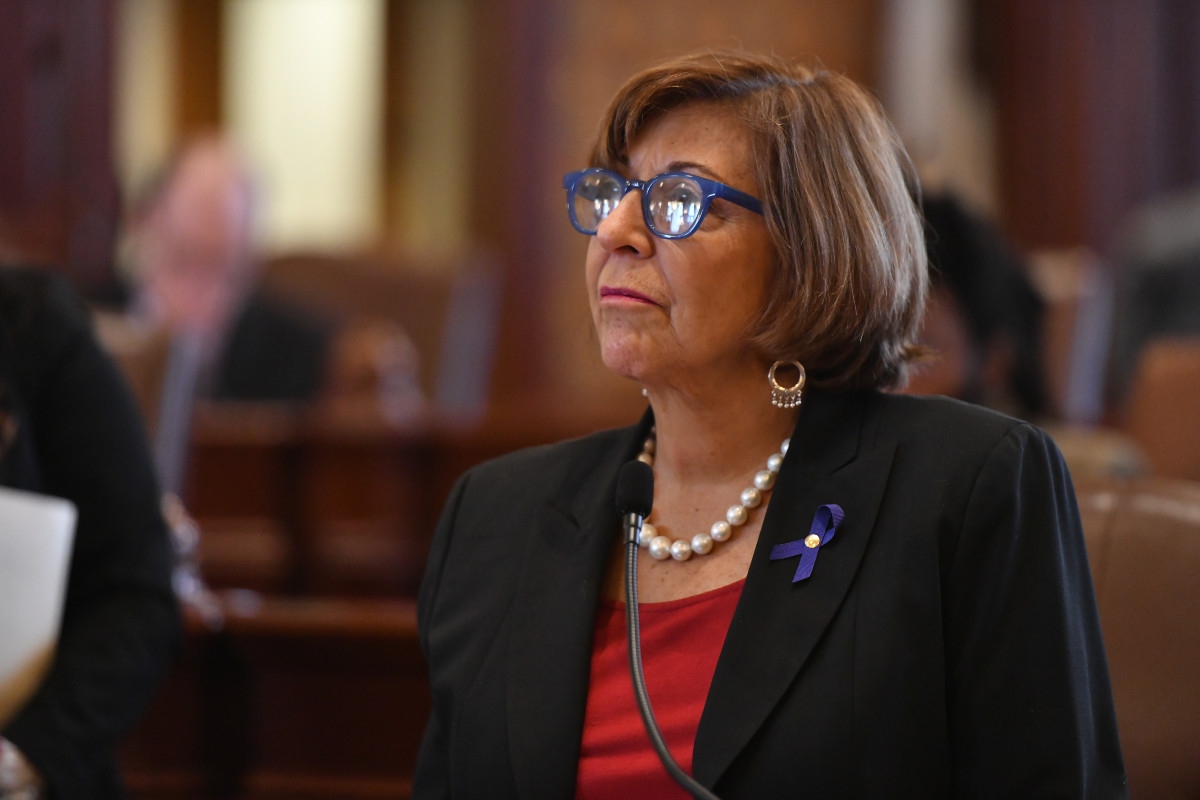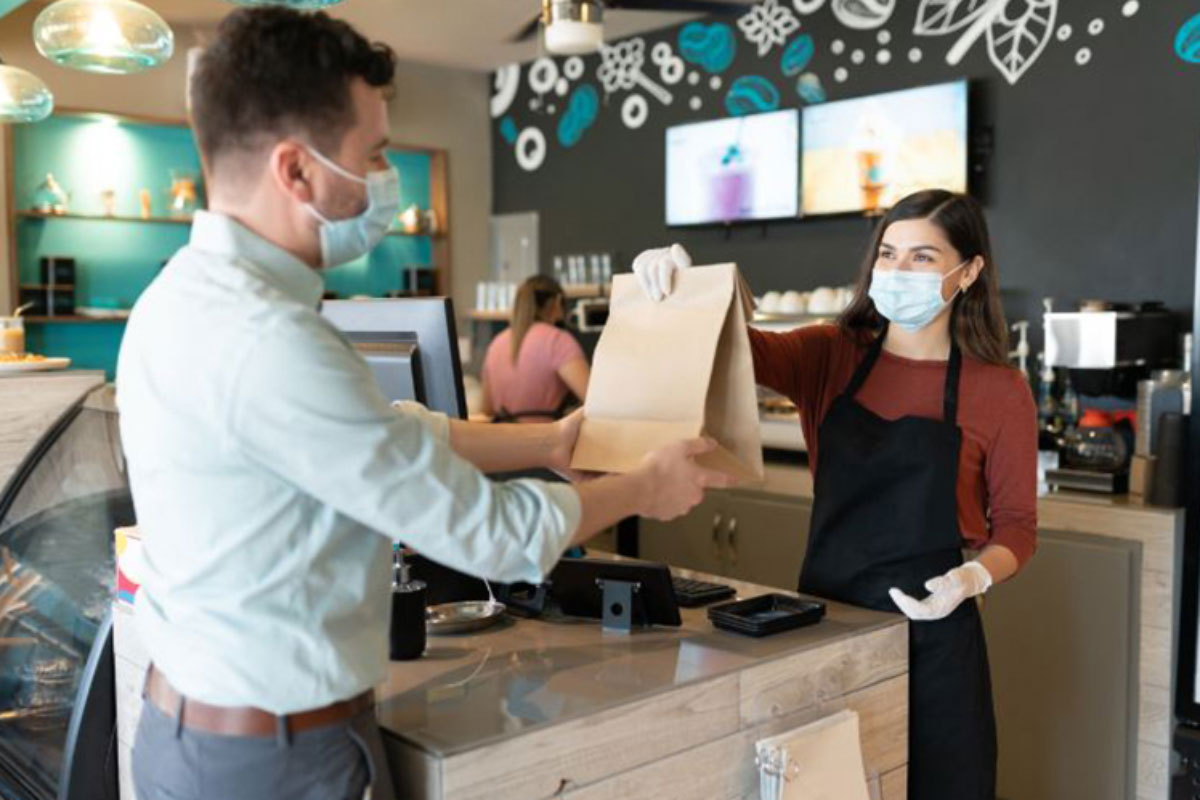- Details
- Category: Senator Sara Feigenholtz News
 CHICAGO – Nearly $3 million in new funding is available to help counties, municipalities, non-profit organizations and promotional groups revitalize Illinois’ tourism industry by promoting events, destinations and tourist attractions, thanks to support from State Senator Sara Feigenholtz.
CHICAGO – Nearly $3 million in new funding is available to help counties, municipalities, non-profit organizations and promotional groups revitalize Illinois’ tourism industry by promoting events, destinations and tourist attractions, thanks to support from State Senator Sara Feigenholtz.
The Illinois Travel and Tourism Grant Program will match up to $100,000 in project funds to drive tourism activity across the state by investing in marketing and promotional projects, including media production costs, billboards, trade shows, website development and more.
“Illinois has a great story for visitors from around the country, we need to get out there and tell it,” said Feigenholtz (D-Chicago). “Marketing dollars available through DCEO will help convention and visitors' bureaus and local governments update their pitch and image so that Illinois is next on everyone's travel list.”
Read more: Feigenholtz encourages local organizations to apply for new tourism funding
- Details
- Category: Senator Sara Feigenholtz News

CHICAGO – In recognition of International Fetal Alcohol Spectrum Disorders Awareness Day on Sept. 9, State Senator Sara Feigenholtz is applauding efforts by health care providers, parents, self-advocates and community organizations who work to support the FASD community, increase education and awareness, and bring evidence-based services to those living with FASD and their families.
“Today, I join advocates to recognize International FASD Awareness Day and take this time to lift up the increasing need for FASD-informed supports and services in Illinois and across the nation,” said Feigenholtz (D-Chicago). “This day is a reminder that, although we have made tremendous advancements in diagnostics and screenings for a multitude of other preventable disorders, we have much work left to do to bring informed services to the FASD community and integrate supports within our other health, education, justice and care systems.”
FASD is an umbrella term that describes the range of physical, behavioral and intellectual disabilities than can occur when someone has been exposed to alcohol before birth. Fetal Alcohol Spectrum Disorders have been dubbed ‘the hidden epidemic’ because of the lack of supports, diagnostics and treatment services available to pregnant women, new mothers and their families.
“People with FASD and their families need accessible, affordable and competent systems of care that are evidence-based and fully funded,” said Feigenholtz. “I am proud to stand with my constituents, Bonnie and Michelle, today to highlight this critical need.”
Read more: Feigenholtz recognizes Fetal Alcohol Spectrum Disorders Awareness Day
- Details
- Category: Senator Sara Feigenholtz News

CHICAGO – To help community members prevent identity fraud and protect their personal information, State Senator Sara Feigenholtz is joining 44th Ward Alderman Tom Tunney and State Representative Margaret Croke to host a paper shredding event on Saturday, Sept. 10 from 9 a.m. to noon at the 44th Ward Office, located at 3323 N. Sheffield Avenue in Chicago.
“Document shredding is a great way for residents to clear out clutter in their homes, keep their personal information safe and protect the environment,” said Feigenholtz (D-Chicago). “I encourage residents to take advantage of this free and convenient service that will keep sensitive information from falling into the wrong hands.”
Shredding services will accept any residential paper documents that contain personal or private information, such as bank statements, invoices, outdated medical records, pay stubs, receipts, credit card offers and tax returns older than seven years. Non-paper items and materials from businesses will not be accepted.
Read more: Feigenholtz partners with area lawmakers to host fall shred day
- Details
- Category: Senator Sara Feigenholtz News
 CHICAGO – In an effort to provide additional support to the tourism sector across Illinois, the Illinois Department of Commerce and Economic Opportunity announced $15 million in funding through the second round of the Tourism Attraction and Festivals Grant program with support and input by State Senator Sara Feigenholtz.
CHICAGO – In an effort to provide additional support to the tourism sector across Illinois, the Illinois Department of Commerce and Economic Opportunity announced $15 million in funding through the second round of the Tourism Attraction and Festivals Grant program with support and input by State Senator Sara Feigenholtz.
“Illinois tourism attractions, festivals and live venues bring scores of visitors to communities all around our state,” said Feigenholtz (D-Chicago), chair of the Senate Tourism and Hospitality committee. “These grants will go a long way to rebuild the diverse attractions that makes Illinois the middle of everything.”
DCEO announced $5 million of the funding will be reserved for festivals, which serve as economic drivers while bringing communities together, and $10 million will support a broad range of other tourism-related project such as attractions, museums, live performance venues and more. This grant is funded using American Rescue Plan Act dollars.
“As chair of the Tourism and Hospitality Committee I am happy the state can provide more financial assistance to local communities and their venues across Illinois to showcase their local attractions and festivals,” said Feigenholtz. “I encourage everyone to venture out in both summer and fall to experience something right in the middle of everything.”
Applications will be accepted until Friday, Sept. 23. To apply, visit illinois.gov/dceo.
- Details
- Category: Senator Sara Feigenholtz News

CHICAGO – State Senator Sara Feigenholtz (D-Chicago) released the following statement in response to the U.S. Supreme Court’s ruling overturning Roe v. Wade, eliminating millions of women across the nation the right to choose:
“For decades, the United States has had the privilege of accessing reproductive health care and abortion care afforded by Roe v. Wade. Today, with one swift stroke of the Damocles sword, that privilege has ended for millions of women across the country. The GOP-backed Supreme Court sent reproductive health care and the right to abortion spiraling back 50 years.
“An extremist minority of anti-choice officials have pushed anti-abortion rhetoric with the end goal of overturning Roe v. Wade. This has been their strategy for 50 years; this has always been their endgame.
Read more: Senator Feigenholtz: Illinois is a safe haven for women
- Details
- Category: Senator Sara Feigenholtz News
 CHICAGO – A measure sponsored by State Senator Sara Feigenholtz will allow Chicago firefighters to add MRSA to the list of occupational disease disability benefits if they contract the infection on duty.
CHICAGO – A measure sponsored by State Senator Sara Feigenholtz will allow Chicago firefighters to add MRSA to the list of occupational disease disability benefits if they contract the infection on duty.
“In recent years, firefighters have seen increased staph infections, including MRSA,” said Feigenholtz (D-Chicago). “Including MRSA on the list of covered protections for firefighters will aid in stopping the spread of the infection.”
The new law aligns Chicago firefighters with downstate firefighters by extending an occupational disease disability benefit to any active Chicago firefighter who has completed seven or more years of service and can’t perform their duties because of a contagious staph infection including MRSA.
Read more: Feigenholtz law adds MRSA to Chicago firefighters’ disability benefits
- Details
- Category: Senator Sara Feigenholtz News
 CHICAGO – Restaurants, bars and retailers will be protected from unscrupulous delivery services thanks to an initiative spearheaded by State Senator Sara Feigenholtz that was signed into law Friday.
CHICAGO – Restaurants, bars and retailers will be protected from unscrupulous delivery services thanks to an initiative spearheaded by State Senator Sara Feigenholtz that was signed into law Friday.
“Businesses have been victims of deceptive delivery services without their knowledge or consent,” said Feigenholtz (D-Chicago). “There are reasons some restaurants and bars may decide not to utilize delivery services. Protecting the brand and reputation that small businesses have worked to establish was a top priority and focus of this new law.”
- Details
- Category: Senator Sara Feigenholtz News

$1.4M in equipment directed to Chicago police districts 18 and 19
CHICAGO – Law enforcement officials will have more technology and tools to solve crimes, including expressway cameras, thanks to a measure sponsored by State Senator Sara Feigenholtz that was signed into law Friday.
“Law enforcement officials need every tool to keep our communities safe,” said Feigenholtz (D-Chicago). “This technology, such as expressway cameras, will reduce unsolved crimes committed on the streets of Chicago and now clarifies the inclusion of Jean-Baptiste Pointe DuSable Lake Shore Drive.”
Feigenholtz worked closely with local law enforcement in her district to bring $1.4 million in funding for equipment for lakefront police.
Read more: Feigenholtz law gives local law enforcement additional crime-solving tools
More Articles …
- Feigenholtz law provides unit owners with transparency of reserve studies, delays Ombudsperson Sunset until 2024
- New Feigenholtz law reconnects former foster children with their foster families
- New Feigenholtz law brings Chicago one step closer to restoring emission testing sites
- Senator Sara Feigenholtz commemorates Yom HaShoah
Page 5 of 13













 © 2026 Illinois Senate Democratic Caucus
© 2026 Illinois Senate Democratic Caucus